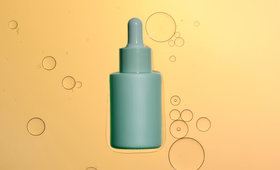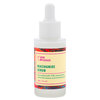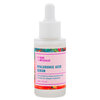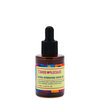
There’s a deadline looming at work, a paper due at school, your boss yells at you, you’re exhausted, and you’re late for work—insert surprise zit! We all feel some level of stress, but is it causing you (and your skin) more harm than necessary? While a little adrenaline rush can help us finish a job or think quickly on our feet, too much stress can be detrimental to our bodies—causing hair loss, weight gain, eczema, trichotillomania, and a lackluster complexion. We spoke with psychologists Ari Novick, Ph.D, and Michael Breus, Ph.D, to discover what stress does to our bodies, and how to beat it.
“The most common causes of stress are work, family, marriage and relationships, time management, finance, not meeting life goals, and disappointment in self,” explains Dr. Novick. Once affected, these stress symptoms can manifest both in the mind and the body. “Physically, stress can cause significant health problems,” says Dr. Novick. “It’s directly related to heart attacks, immune system deficiencies, diabetes, ulcers, eczema, and weight gain. Mentally, it can cause feelings of depression and anxiety, lack of motivation, anger, nervousness, mood swings, and procrastination.”
Lack of sleep is also a huge contributor to stress. Without enough shut-eye, stress levels can skyrocket, causing blotchy skin, a dull complexion, dark under eye circles, and weight gain. “Sleep deprivation causes a change in your stress hormones, such as cortisol,” explains Dr. Breus. “The more sleep deprived you are, the higher your level of cortisol. This increases your appetite—specifically for high carb and high fat foods—which increase the levels of serotonin in your brain, which in turn, helps reduce cortisol and calm you down.”
But rather than let a vicious cycle of poor rest and fatty food continue, look at coping with your stress properly. At its core, stress management involves a steady rhythm of physical changes—exercise, a proper diet, and sleep. But glowing, tension-free skin, and a stress-free life also comes from a healthy mindset. “In general, it’s not the situation that dictates our response, but rather our perception of the stressful event,” reasons Dr. Novick. “Learning to change your perception is half the battle.” Surround yourself with positive social support, improve your internal dialogue to yourself, and adopt some tactics to better manage your time and boundaries with others. “I also recommend keeping a worry journal,” adds Dr. Breus. “This is just a piece of paper where you list your issues, and then schedule a time to think about themthe next day. This allows for a feeling of accomplishment and gives you more appropriate timing for problem resolution.”
You Might Also Like
-

Expert Skin Care Advice
5 Skin Misconceptions
- 175
-

Wellness
Why We Love Yogurt
- 648
-

outFit with Kit
OutFit with Kit: Free Your Inner Child
- 107
-

Expert Skin Care Advice
Skin-Saving Tips That Can Change Your Complexion
- 1711
-

Stories
Body By Kit: A Crappy Situation
- 273
-

Expert Skin Care Advice
What is Retinol?
- 320
-

Wellness
Healthy Holiday Drinks
- 657
-

Fitness
outFit With Kit: The Morning Wake-Up Workout
- 1681












